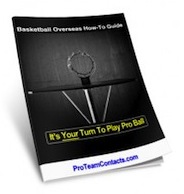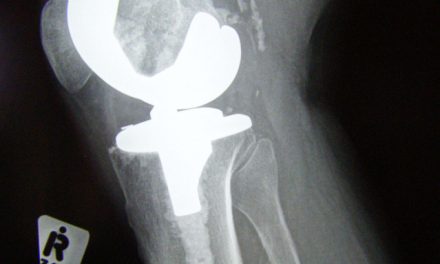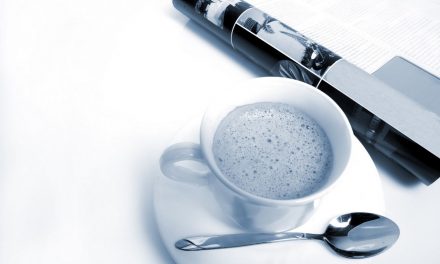Immunity and the Athlete by Patricia Niland DIP.ION (MBANT)
SPORTS NUTRITION
© Patricia Niland 2005
To realise potential, it is vital that an athlete has the ability to train consistently. Successful training, over time, builds a stronger, faster, more efficient body which will hopefully go on to produce optimum athletic performances. Time lost due to ill health, is time that a competitive athlete cannot afford to lose. In the long term the athlete and his/her coach needs to be conscientious about their own ‘care’ and acknowledge that they have a responsibility for the training and nutrition factors within their control, both of which can influence success or failure.
Illness can have profound effects on an athletes mental perspective, causing loss of rythym and habit. Once recovered the athlete may need to mentally regain focus. Maintaining a healthy immune system is therefore a considerable factor in the athletes pursuit of success.
Moderate exercise has been demonstrated to have beneficial effects on the immune system, reducing the risk of colds and chest infections. However for the competitive athlete who trains at a greater intensity and for longer durations, intensive exercise has the potential to cause immune suppression, with a recognised window of lowered post exercise immunity existing where the athletes system is vulnerable to infection (Nieman 2003).
Post-exercise immune suppression is thought to be partly due to the increase in production of stress hormones such as cortisol and adrenaline. Athletes training or competing in a carbohydrate-depleted state, will experience a greater increase in these hormones. It is therefore suggested that the ingestion of 30-60g carbohydrate per hour by athletes, during intensive exercise can create a reduction in stress and immune markers. (Gleeson et al 2004)
Reduction in immune status also occurs when an athlete has compromised glycogen and fat stores. This can be caused by the ineffective replacement of calories after exercise, or a conscious avoidance of fat. Calorific expenditure should therefore be balanced by an equivalent intake of calories, and the consumption of essential fats become more commonplace. When the diet shows signs of nutrient deficiencies, supplementation should be utilised to provide protection. However care should be taken not to overcompensate and the diet should always be viewed as the main provider of nutrients. (Venkatraman et al 2002)
Training alone is not responsible for the suppression of the immune system. Neiman identifies many factors that can contribute and should be considered
- Diet
- Training and competition
- Family/relationships
- Work
- Travel
- Rest
Boost immunity and train consistently
Optimum nutrition, should be the fundamental consistent factor for any athlete. When training schedules are planned, time should always be taken to plan an appropriate dietary programme. This should be specific to the individuals training and competition requirements. Revisions in training intensity, increases or decreases, should always merit revisions to the diet.
DIETARY RULES
Fats
Saturated fats and trans/hydrogenated fats are not essential to the body and should be avoided as they suppress immunity and inhibit the function of essential fats. However the essential fats Omega 3, 6 and 9 are vital for the athlete as they enhance cell membrane integrity, increasing metabolism and immunity. Emphasis should be given to _3’s.
AVOID: Margarine (hydrogenated fats)
Processed foods and foods high in saturated fats
INCREASE: Nuts – Brazil, almond, walnut, pecan, hazelnut. Seeds and their oils – pumpkin, sunflower, sesame, hemp, flax
Oily fish – Mackerel, herring etc
Carbohydrates
Refined carbohydrates (white rice and bread) should be substituted for whole grains, ie. wholemeal bread and brown rice, both for their nutrient and fibre content. Large amounts of refined sugar should be avoided due to its immune suppression potential.
Fruit and vegetable intake should be around 7-10 portions per day. Organic produce is preferable and when possible vegetables should be consumed raw to increase vitamin, phyto-chemicals and enzyme content.
Protein
Vegetarian athletes should ensure they are consistently taking in high quality protein (see below). When the athlete is not vegetarian, the increase/inclusion of vegetarian protein would be beneficial.
INCLUDE MORE: Beans, pulses, tofu and quinoa, cheese (goats), eggs (with _3’s), oily fish
AVOID: Proteins high in saturated fats, red meats and processed meats
ie. burgers and sausages
GENERAL RULES
Stress
Athletes need to acknowledge stress and the role it can play in performance and immunity. Priorities must to be identified, taking into consideration all other life factors (see previous page). Realistic, attainable goals can then be created, enabling the athlete to train and compete whilst keeping stress levels to a minimum.
Pulse test
To check for over training/infection — this should be done every morning before rising.
Take the pulse. A rise of 8 beats or above from the average for the preceding week, would signal that athlete should reduce training.
Sleep
Quality sleep is essential.
Factors which suppress or inhibit immunity
High intake of dietary fats (saturated and trans fats)
Compromised glycogen and fuel depletion
Training >90 minutes
Over training
Weight loss
Stress
Lack of sleep
Deficiency of dietary protein
Deficiency of vitamins A, C, E, B6 and B12 and the minerals iron, zinc, selenium and copper
Reading
Nieman DC. Current perspective on exercise immunology.
Curr Sports Med Rep. 2003 Oct;2(5):239-42.
Gleeson M, Nieman DC, Pedersen BK. Exercise, nutrition and immune function.
J Sports Sci. 2004 Jan;22(1):115-25.
Venkatraman JT, Pendergast DR. Effect of dietary intake on immune function in athletes.
Sports Med. 2002;32(5):323-37.
Gleeson M, Lancaster GI, Bishop NC. Nutritional strategies to minimise exercise-induced immunosuppression in athletes.
Can J Appl Physiol. 2001;26 Suppl:S23-35
About the Author
Patricia Niland DIP.ION (MBANT), is a Nutritional Therapist, who prepares personal programmes for individuals and athletes to enhance their health, wellbeing and performance – to find out more go to www.nilandnutrition.com








 Your questions have been answered in the definitive guide to Playing Basketball Overseas. Join the newsletter and you will receive the 29 page report that explains how to get started and other tips that I think everyone will enjoy
Your questions have been answered in the definitive guide to Playing Basketball Overseas. Join the newsletter and you will receive the 29 page report that explains how to get started and other tips that I think everyone will enjoy
Recent Comments